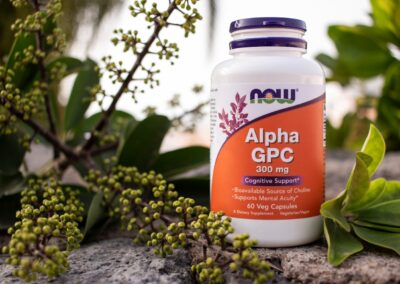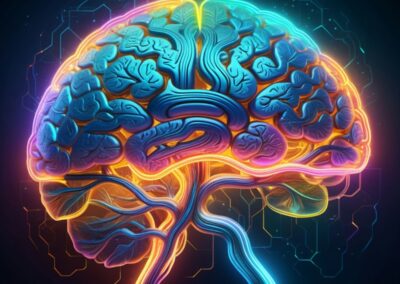Understanding Modern and Traditional Approaches to Enhancing Cognitive Function
The Rise of Nootropics in Cognitive Enhancement
The advent of nootropics in the realm of cognitive enhancement has sparked significant interest among business executives, mid-level managers, and entrepreneurs seeking to boost their mental acuity. Nootropics, often referred to as “smart drugs,” are substances that claim to improve cognitive functions such as memory, creativity, and motivation. These substances range from natural compounds like ginkgo biloba and caffeine to synthetic drugs like modafinil and racetams. In regions like Saudi Arabia and the UAE, where innovation and peak performance are highly valued, the adoption of nootropics is becoming increasingly popular.
Nootropics work by altering the availability of neurotransmitters, enzymes, or hormones in the brain, thereby enhancing its efficiency and performance. For instance, modafinil, a well-known nootropic, promotes wakefulness and is often used to treat narcolepsy. It has gained popularity among professionals who need to maintain high levels of concentration and alertness for extended periods. In dynamic cities like Riyadh and Dubai, where the pace of business is fast and competitive, nootropics offer a quick and effective way to stay ahead.
However, the use of nootropics is not without controversy. While some studies support their cognitive benefits, others highlight potential side effects and ethical concerns. The long-term impact of synthetic nootropics on brain health remains largely unknown, raising questions about their safety and sustainability. As the demand for cognitive enhancement grows, it is crucial to balance the benefits and risks associated with nootropics, ensuring their responsible use in professional settings.
Traditional Methods: Meditation and Mindfulness
Contrasting with the rapid effects of nootropics, traditional methods such as meditation and mindfulness offer a holistic approach to cognitive enhancement. These practices, rooted in ancient traditions, focus on training the mind to achieve a state of calm and awareness. Meditation involves techniques such as focused attention, deep breathing, and visualization to cultivate mental clarity and emotional stability. In the fast-paced environments of Saudi Arabia and the UAE, incorporating meditation into daily routines can provide a sustainable way to manage stress and enhance cognitive function.
Mindfulness, closely related to meditation, emphasizes being present in the moment and fully engaging with one’s thoughts and feelings without judgment. This practice has been shown to improve concentration, reduce anxiety, and enhance overall mental well-being. For business leaders and managers in Riyadh and Dubai, mindfulness can be a valuable tool for improving decision-making, fostering creativity, and maintaining work-life balance.
The benefits of meditation and mindfulness are supported by extensive scientific research. Studies have demonstrated that regular practice can lead to structural changes in the brain, enhancing areas responsible for attention, memory, and emotional regulation. Unlike nootropics, which provide immediate but temporary boosts, meditation and mindfulness offer long-term cognitive benefits without the risk of side effects. These traditional methods align well with the growing emphasis on mental health and well-being in modern business practices.
Comparing Nootropics and Traditional Methods
When comparing nootropics and traditional methods like meditation and mindfulness, it is essential to consider the context and objectives of cognitive enhancement. Nootropics provide quick and targeted improvements in cognitive function, making them suitable for situations that require immediate results, such as high-stakes business meetings or critical project deadlines. In contrast, meditation and mindfulness offer gradual and sustainable cognitive benefits, making them ideal for long-term mental health and performance.
In the competitive business landscapes of Saudi Arabia, UAE, Riyadh, and Dubai, both approaches have their merits. Nootropics can provide the edge needed to excel in demanding situations, while meditation and mindfulness can build a strong foundation for continuous cognitive and emotional growth. The choice between these methods depends on individual preferences, goals, and the specific demands of one’s professional environment.
For optimal results, a combination of both approaches may be beneficial. Integrating nootropics with regular meditation and mindfulness practices can provide a balanced approach to cognitive enhancement. This hybrid strategy allows professionals to harness the immediate benefits of nootropics while cultivating the long-term advantages of traditional methods. In regions that prioritize innovation and well-being, such as Saudi Arabia and the UAE, adopting a comprehensive approach to cognitive enhancement can lead to sustained success and fulfillment.
The Role of Leadership and Management in Promoting Cognitive Health
Leadership and management play a crucial role in promoting cognitive health within organizations. Business leaders in Riyadh and Dubai can set an example by embracing both modern and traditional cognitive enhancement methods. Encouraging the responsible use of nootropics, while also fostering a culture of mindfulness and meditation, can create a balanced and supportive work environment. This approach not only enhances individual performance but also contributes to overall organizational well-being.
Training programs and workshops on cognitive enhancement can be valuable for educating employees about the benefits and risks of different methods. Providing access to resources such as meditation apps, mindfulness sessions, and information on nootropics can empower employees to make informed decisions about their cognitive health. In progressive business hubs like Dubai, integrating such initiatives into corporate wellness programs can enhance employee engagement, productivity, and retention.
Moreover, organizations should establish ethical guidelines for the use of cognitive enhancement tools. Ensuring that nootropics are used responsibly and ethically is crucial for maintaining trust and integrity within the workplace. Clear policies on the use of cognitive enhancers, coupled with support for traditional methods, can create a holistic approach to mental and cognitive health in the professional setting.
Conclusion
In conclusion, the debate between nootropics and traditional cognitive enhancement methods like meditation and mindfulness is complex and multifaceted. Both approaches offer unique benefits and challenges, and their effectiveness depends on individual needs and contexts. In regions like Saudi Arabia and the UAE, where innovation and well-being are highly valued, a balanced approach that combines the immediate benefits of nootropics with the sustainable advantages of meditation and mindfulness can lead to optimal cognitive performance and overall success. By promoting a culture of cognitive health, business leaders can drive innovation, enhance productivity, and foster a supportive and dynamic work environment.
—
#Nootropics #CognitiveEnhancement #Meditation #Mindfulness #ArtificialIntelligence #BusinessSuccess #LeadershipSkills #ManagementSkills #ProjectManagement #SaudiArabia #UAE #Riyadh #Dubai























